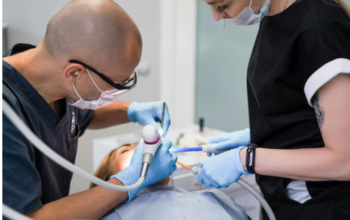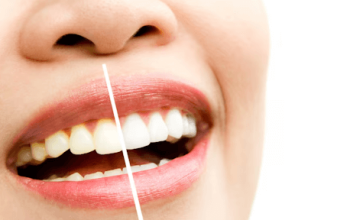Our teeth are marvels of biological engineering, the product of intricate genetic blueprints that guide their development from before birth. But sometimes, genetic mutations disrupt this complex process, leading to disorders that significantly impact the structure, number, appearance, and health of teeth. Understanding these genetic conditions is crucial for early diagnosis, specialized care, and effective management throughout life. For individuals and families navigating these challenges in the Pikes Peak region, finding a knowledgeable Colorado Springs CO dentist experienced in genetic dental disorders is a vital first step.
Common Genetic Disorders Impacting Teeth
Amelogenesis Imperfecta (AI)
This group of conditions affects the enamel, the hard, protective outer layer of teeth. Mutations in genes responsible for enamel formation (like AMELX, ENAM, MMP20) result in enamel that is:
- Hypoplastic: Thin, pitted, or grooved.
- Hypomaturation: Softer, prone to chipping and staining (often brown or yellow), despite normal thickness.
- Hypocalcified: Very soft, chalky, and wears away rapidly.
AI teeth are highly susceptible to decay, sensitivity, and aesthetic concerns. Treatment focuses on protecting the teeth with crowns or veneers and aggressive prevention strategies. Managing AI effectively often requires the coordinated care of a best dentist in Colorado Springs who specializes in complex restorative work and potentially orthodontics.
Dentinogenesis Imperfecta (DI) & Dentin Dysplasia (DD)
These disorders primarily affect the dentin, the layer beneath the enamel. DI (types I, II, III) typically causes teeth to appear translucent, opalescent (blue-gray or amber), and weak. The dentin is abnormal, leading to rapid enamel loss and severe wear. DD (types I & II) affects dentin formation and root structure, often leading to shortened, malformed roots (Type I) or unusual tooth color and premature loss (Type II). Both conditions make teeth fragile and prone to abscesses due to pulp chamber abnormalities. Restorative dentistry, often involving crowns on primary and permanent teeth, is essential. Early intervention by a skilled Colorado Springs CO dentist familiar with these brittle tooth structures is critical.
Cleidocranial Dysplasia (CCD)
Caused by mutations in the RUNX2 gene, CCD primarily affects bone development, including the skull and collarbones. Dental manifestations are profound:
- Supernumerary Teeth: Excessive numbers of extra teeth, often blocking the eruption of permanent teeth.
- Delayed or Failed Eruption: Permanent teeth frequently remain impacted within the jawbone.
- Malformed Roots and Teeth.
Management is complex and prolonged, typically involving oral surgery to remove supernumerary teeth and expose impacted teeth, followed by extensive orthodontic treatment to guide eruption and alignment. This demands a highly coordinated team approach, potentially involving the best dentist in Colorado Springs with expertise in surgical orthodontics and complex cases.
Ectodermal Dysplasias (EDs)
This diverse group of syndromes affects structures derived from the embryonic ectoderm, including hair, sweat glands, skin, nails, and teeth. Dental features are often a hallmark:
- Hypodontia/Oligodontia/Anodontia: Missing multiple teeth (hypodontia/oligodontia) or complete absence of teeth (anodontia).
- Conical or Peg-Shaped Teeth: Abnormally shaped teeth, particularly incisors and canines.
- Enamel Hypoplasia: Thin or defective enamel.
- Delayed Eruption.
Treatment focuses on restoring function and aesthetics, often starting in childhood with partial dentures and progressing to complex prosthodontics (dentures, bridges) or dental implants later in life. A compassionate and experienced Colorado Springs CO dentist skilled in pediatric and adult prosthodontics is essential for managing the significant functional and psychosocial impacts of EDs.
Other Notable Conditions
Down Syndrome (Trisomy 21)
Increased risk of delayed eruption, missing teeth, microdontia (small teeth), macroglossia (large tongue contributing to crowding), and severe periodontal (gum) disease.
Apert Syndrome & Crouzon Syndrome
Craniofacial syndromes often involving severe crowding, impacted teeth, V-shaped dental arches, and enamel hypoplasia.
Tricho-Dento-Osseous Syndrome
Characterized by kinky hair, brittle nails, and dental anomalies like enamel hypoplasia, taurodontism (enlarged pulp chambers), and sometimes impacted teeth.
The Importance of Specialized Care
Genetic dental disorders present unique, lifelong challenges. Management is rarely simple and often requires a multidisciplinary team approach, potentially involving pediatric dentists, orthodontists, oral surgeons, prosthodontists, and genetic counselors.
- Early Diagnosis and Intervention: Recognizing signs early (e.g., delayed eruption, unusual tooth color or shape, excessive tooth wear in childhood) allows for proactive management plans to preserve tooth structure, guide development, and prevent complications like pain, infection, and bone loss. Genetic testing may be recommended to confirm a diagnosis.
- Personalized Treatment Plans: Care must be tailored to the specific disorder, its severity, the patient’s age, and overall health. This ranges from preventive strategies (high-fluoride treatments, meticulous hygiene) to complex restorative and prosthetic solutions.
- Psychosocial Support: The aesthetic impact of these disorders can significantly affect self-esteem. Compassionate care that addresses both functional and emotional needs is paramount.
Finding the Right Support in Colorado Springs
Living with a genetic dental disorder requires specialized expertise. Look for dental professionals who:
- Have experience diagnosing and managing rare dental conditions.
- Offer comprehensive services or collaborate seamlessly with specialists (orthodontics, oral surgery, prosthodontics).
- Understand the long-term implications and planning needed.
- Provide a compassionate and supportive environment for patients and families.
For residents navigating the complexities of genetic dental disorders, partnering with the best dentist in Colorado Springs who possesses the necessary experience and collaborative network is fundamental to achieving optimal oral health, function, and confidence throughout life. Don’t hesitate to seek consultations to find the team best equipped to manage your specific genetic condition. Early and specialized care makes a profound difference.



